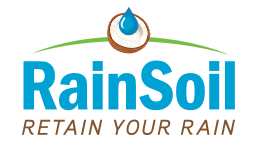- Total $0.00
Soil Revamped: Utilizing Coconut Coir | RainSoil
When you’re using RainSoil, you already know you’re using a product that’s unique from your run-of-the-mill potting soil. Still, you may wonder what exactly the RainSoil difference is. What makes our product so sustainable and effective? What exactly are you getting that you won’t get with our competitors?
One answer to that question is coconut coir. The inclusion of this fibrous by-product of the coconut can benefit you as a greenhouse grower and improve your agricultural practices in ways you may not have expected. It is the element of our soil that replaces peat moss, which is used in most typical soils you’d find at the store.
There are several reasons we believe in utilizing this product that would normally be composted or thrown out. Keep reading for the ins and outs of coconut coir: what it is, why we use it, and how it can help your edible crops thrive.
What is Coconut Coir?
Coconut coir is cultivated from the fibrous inner shell of the coconut. It has recently become a more and more popular alternative to peat moss as it functions similarly to improve a garden bed with some added benefits.
The main difference between the way coconut coir and peat moss work can be explained by their acidic/alkaline properties. Coconut coir is more alkaline, or basic, than peat moss which has a higher acidity. Essentially, coconut coir has a neutral PH. This eliminates the need for limestone, which is normally added to beds to cut the acidity of peat moss and aid the growth of the plants. This can save farmers and greenhouse growers time and money.
And to think, you’ve been throwing away your coconut shells all of these years! At RainSoil, we strongly believe in reusability, especially if it can improve your life and crop production.
How Can Coconut Coir Benefit My Grow?
Aside from the effectiveness of the PH levels, there are a few ways coconut coir can eliminate some of the problems you may be having with peat moss soil…
Improves Drainage
Coconut coir has proven to be very effective in helping the soil drain naturally without letting it dry out. The coir breaks up rich soil and creates small air pockets that are necessary for effective drainage as they allow water to move through the soil.
However, the coir fibers also retain moisture, which keeps your soil from over-draining and drying out. This makes coconut coir the perfect natural supplement from heavy, rich soils or clays as it has the dual functionality of keeping soil moist while helping it to drain properly.
Guaranteed Purity
Coconut coir doesn’t come with some of the risks that its counterparts might carry. It’s a sterile and clean soil supplement that’s free of bacteria. This means that plants grown with RainSoil will be free of exposure to diseases, unwanted pests, or potential fungus growth.
The bottom line is that you know where coconut coir comes from. Can you say that about other soils you’ve used?
Sustainability
Sustainability is a huge concern of ours, and if it’s a concern of yours, too, you want to try coconut coir soil.
First of all, peat moss isn’t like any other perennial crop that can be endlessly cultivated. Once harvested, peat moss can take centuries to regrow. This means that the more its harvested, the less of it will be available, which could lead to its endangerment. Coconuts, on the other hand, are harvested every year. They’re a versatile fruit, and often times most parts will be used such as the the meat, the milk, and sometimes even the husks. Historically, however, coconut coir has been sent off to clog up landfills. With the rising popularity of coconut coir soil, this useful by-product can finally be put to work for everyone’s benefits. Otherwise, if discarded, it can take over a century to break down.
Improves Over Time
One thing you should know about coconut coir is while it contains certain nutrients, it isn’t rich with them. Certain plants that feed heavily on the contents of their fertilizer may require supplemental material, but low-nutrient soil is actually good for many crops.
The fact that coconut coir is composed more of organic matter than nutrients is actually beneficial to the soil over time. The annual addition of organic matter to soil results in looser, more moveable soil. This kind of soil is actually ideal for growing vegetables, even if you might have to add nutrients for certain crops.
Conclusion
If you’re looking for a sustainable, self-draining, pure growth supplement, RainSoil might be right for you and your garden. If you’re ready to give coconut coir a try, contact us and learn more about what we have to offer.



